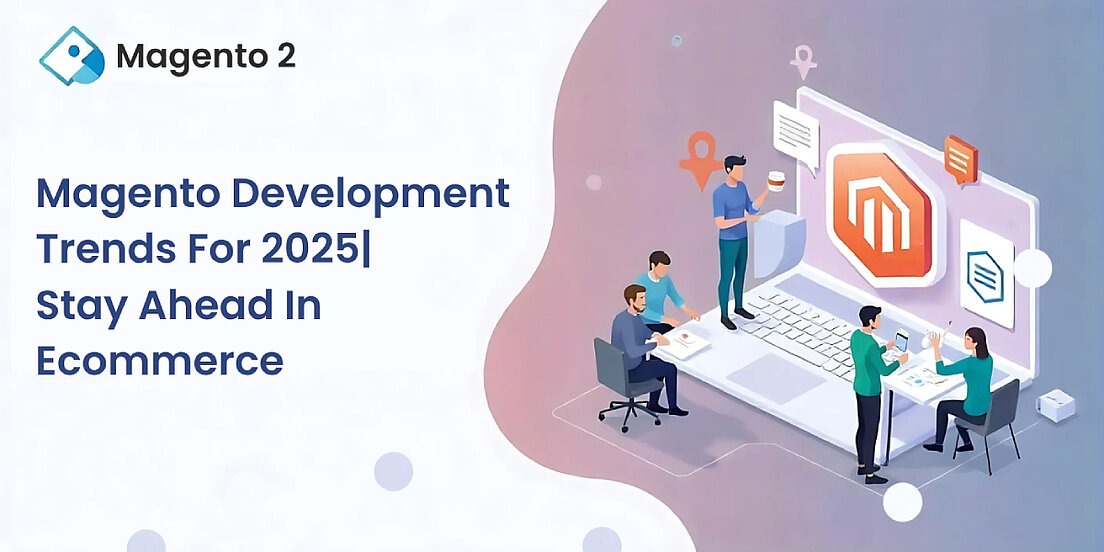Magento stands out as one of the leading content management systems (CMS), particularly favoured for e-commerce platforms. It consistently evolves in design, integration, security, and other key areas. As a formidable player in the market, Magento is celebrated for its flexibility and essential features. The e-commerce sector demands that Magento continually adapts to new technologies and market dynamics. For organizations seeking to maintain a competitive advantage, staying current with Magento development trends is critical. Adobe Commerce, Magento’s parent company, significantly influences these trends by introducing advanced technologies and remarkable functionalities.
Progressive Web Apps (PWA)
Progressive Web Apps (PWA) have emerged as a crucial element for Magento e-commerce platforms. PWAs offer significant advantages over traditional web applications, such as faster loading times and offline capabilities. The launch of Magento PWA Studio empowers developers to create modern, mobile-first engagement experiences for e-commerce sites. These Magento e-commerce development trends and technologies enable Magento 2 stores to deliver a seamless, app-like interface, reflecting current trends in e-commerce development.
AI-Powered Personalization
Artificial intelligence (AI) is revolutionizing personalized experiences within Magento stores. By analysing consumer behaviour and content preferences through tools like Adobe Sensei, Magento elevates the shopping experience. Emerging trends in AI personalization leverage machine learning and generative AI to help customers find relevant products and exclusive deals more efficiently.
Headless Commerce
Headless commerce marks a pivotal shift in e-commerce architecture, enabling the front end to operate independently from the back end. This decoupling reduces complexity while enhancing flexibility and scalability for businesses. Leveraging tools like Magento GraphQL and API-driven development, empowers greater frontend adaptability, aligning seamlessly with modern development trends. As we look at Magento technology trends in 2025, headless commerce continues to gain momentum for its ability to deliver enhanced customization and unmatched flexibility.
Enhanced Security Features
Security remains a top priority in Magento development and cannot be compromised. Implementing advanced security measures, such as PCI DSS compliance, two-factor authentication (2FA), and regular security patches, helps prevent unauthorized access and cyber threats. These features play a critical role in safeguarding Magento stores and emphasize the importance of maintaining robust security protocols.
Omni channel and Multichannel Selling
The demand for effective multichannel management is on the rise, driven by the need for a cohesive shopping experience. The Magento e-commerce trends module supports social media commerce, multichannel sales, and marketplace capabilities. These trends enable businesses to be accessible to customers across various purchasing platforms.
Advanced Analytics and Data-Driven Insights
Advanced analytics play a critical role in optimizing performance for Magento stores. Tools like Adobe Analytics and Magento Business Intelligence enable comprehensive analysis of customer behaviour and store performance. These Magento development trends insights guide strategic decisions, ultimately leading to improved business outcomes.
Sustainability and Green Commerce
Sustainability is emerging as a key focus in e-commerce. Green commerce practices appeal to both consumers and businesses, prompting Magento platforms to embrace eco-friendly technologies and methods. This shift toward sustainability highlights a rising interest in environmentally conscious practices within Magento platform trends.
Real-Time Personalization
The application of AI algorithms for real-time personalized marketing is revolutionizing the e-commerce landscape. Magento stores can now deliver tailored experiences based on real-time customer actions. Tools like Adobe Sensei play a significant role in facilitating these real-time personalization efforts, contributing to the popularity of Magento technology trends in 2025.
Conversational Commerce & Growth of Chatbots
Emerging Magento e-commerce trends include Chatbots and conversational commerce, which are transforming how businesses engage with customers. Chatbots bridge gaps in customer service by providing instant support and enhancing the shopping experience. Key use cases include handling natural language inquiries and offering personalized product recommendations, making them valuable tools for companies aiming to implement conversational interfaces.
Enhanced Product Information Management (PIM)
Product Information Management (PIM) plays a crucial role in efficiently managing product data across Magento stores. Magento PIM solutions guarantee accurate and consistent data management, which is vital for effective customer interactions. This capability aligns with evolving Magento development trends, simplifying access to reliable product information for consumers.
Buy Now Pay Later (BNPL)
The Buy Now Pay Later (BNPL) option continues to rise in popularity, offering customers greater flexibility with their payments. Incorporating BNPL plans into Magento e-commerce trends enhances customer purchasing power and boosts sales, making this a standout trend in the ever-evolving e-commerce landscape.
Integration with Magento E-commerce
Magento’s ability to seamlessly integrate with various systems and dispatch tools significantly enhances its overall effectiveness. Connections with third-party platforms and APIs offer distinct advantages, improving connectivity and operational efficiency.
Conclusion
Staying informed about Magento development trends for 2025 empowers businesses to embrace cutting-edge tools and remain competitive in the marketplace. From PWAs to AI-driven personalization and headless commerce, these trends reflect a promising and progressive future for Magento. Offering services such as website development, AI-powered customization, theme design, advanced security features, and multichannel selling, Magento ensures seamless and efficient e-commerce operations. Partner with PIT Solutions, a leading Magento development company in UAE, to unlock innovative solutions and drive success for your e-commerce ventures.

